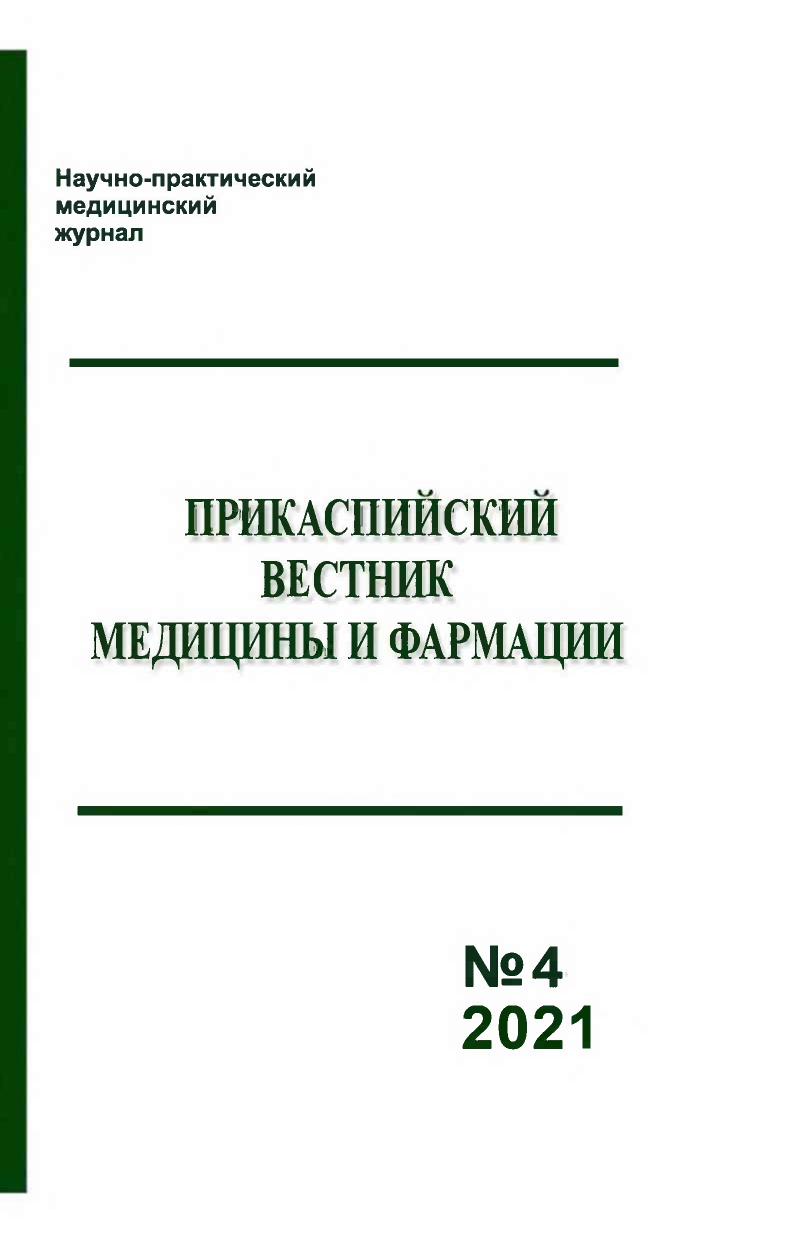Astrakhan, Russian Federation
The study aimed to evaluate the risk of developing adverse drug reactions in patients aged 65 years and older who received drug treatment for mental disorders. The analysis demonstrated the potential of specific tools for assessing drug therapy appropriateness in a mental health setting. An assessment using «Trigger Tool for Measuring Adverse Drug Events in a Mental Health Setting» and «The GerontoNet ADR Risk Score» showed that more than half of hospitalized elderly patients are at risk of adverse reactions. In the majority of cases, this risk was associated with two major factors characterizing drug therapy in the study group: age and psychopharmacotherapy. These results highlight the importance of careful control over drug therapy safety in patients aged 65 years and older and therapy optimization when a high risk of adverse drug events is identified.
global trigger tool, the GerontoNet ADR risk score, adverse drug reactions, polypharmacy
1. Sychev D.A. Polipragmaziya v klinicheskoy praktike: problema i resheniya. COP «Professiya». 2018. 272 s.
2. Hiemke Bergemann C. N., Clement H., Conca A., Deckert J., Domschke K. Consensus Guidelines for Therapeutic Drug Monitoring in Neuropsychopharmacology: Update 2017 // Pharmacopsychiatry. 2018. Vol. 51, no. 01/02. P. 9-62. doi:https://doi.org/10.1055/s-0043-116492.
3. Kirilochev O.O., Umerova A.R. Antiholinergicheskaya aktivnost' lekarstvennyh sredstv i vozmozhnosti ee kontrolya v usloviyah psihiatricheskogo stacionara // Medicina. Sociologiya. Filosofiya. Prikladnye issledovaniya. 2021. №3. S. 58-64.
4. Petrova N.N., Dorofeykova M.V. Antipsihoticheskaya polipragmaziya: za i protiv // Sovremennaya terapiya psihicheskih rasstroystv. 2016. №1. S. 11-16.
5. Windfuhr K., Turnbull P., While D., Swinson N., Mehta H., Hadfield K. The incidence and associated risk factors for sudden unexplained death in psychiatric in-patients in England and Wales // Journal of Psychopharmacology. 2011. Vol. 25, №11. P. 1533-1542. doi:https://doi.org/10.1177/0269881110379288.
6. Ushkalova E.A. Polipragmaziya v geriatrii // Voprosy organizacii i informatizacii zdravoohraneniya. 2018. T. 95, №2. S. 120-130.
7. Kirilochev O.O. Ocenka farmakoterapii u pozhilyh pacientov psihiatricheskogo profilya s uchetom kriteriev Birsa // Uspehi gerontologii. 2020. T. 33, №4. S. 325-330. doi:https://doi.org/10.34922/AE.2020.33.2.015.
8. Kirilochev O.O., Umerova A.R., Dorfman I.P., Bataeva S.E. Nekotorye aspekty bezopasnosti farmakoterapii pozhilyh pacientov s psihicheskimi zabolevaniyami // Klinicheskaya farmakologiya i terapiya. 2020. T. 29, №1. S. 80-84. doi:https://doi.org/10.32756/0869-5490-2020-1-80-84.
9. IHI Global Trigger Tool for Measuring Adverse Events (Second Edition). IHI Innovation Series white paper. Cambridge, Massachusetts: Institute for Healthcare Improvement. www.IHI.org. URL: http://www.IHI.org.
10. Hefner G. Application of the GerontoNet ADR Risk Score in a Psychiatric Setting / G. Hefner, M. Hahn, S.C. Roll, A. Klimke, C. Hiemke // International Journal of Clinical Medicine Research. 2018. Vol. 5, no. 1. P. 7-14.
11. By the 2019 American Geriatrics Society Beers Criteria® Update Expert Panel. American Geriatrics Society 2019 Updated AGS Beers Criteria® for Potentially Inappropriate Medication Use in Older Adults // J Am Geriatr Soc. 2019. Vol. 67, no. 4. P. 674-694. doi:https://doi.org/10.1111/jgs.15767.
12. Tkacheva O.N., Kotovskaya Yu.V., Runihina N.K., Frolova E.V., Naumov A.V., Vorob'eva N.M., Ostapenko V.S., Mhitaryan E. A., Sharashkina N.V., Tyuhmenev E. A., Pereverzev A.P., Dudinskaya E.N. Klinicheskie rekomendacii «Starcheskaya asteniya» // Rossiyskiy zhurnal geriatricheskoy mediciny. 2020. №1. S. 11-46. doi:https://doi.org/10.37586/2686-8636-1-2020-11-46.














